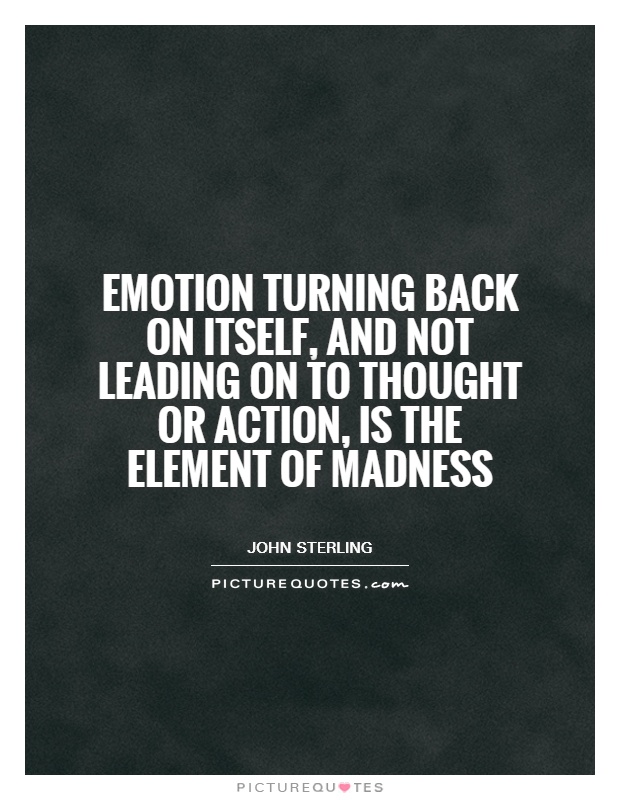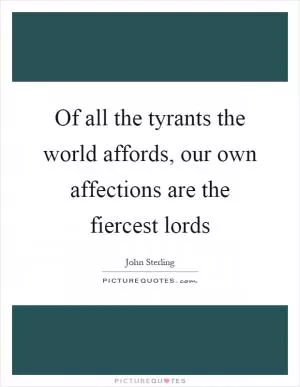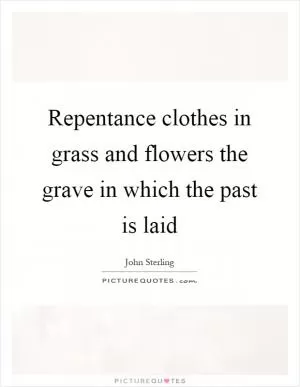Emotion turning back on itself, and not leading on to thought or action, is the element of madness

Emotion turning back on itself, and not leading on to thought or action, is the element of madness
John Sterling was a 19th-century English writer and poet known for his introspective and emotional works. His writings often delved into the complexities of human emotion and the impact it can have on one's mental state. One of Sterling's most famous quotes is, "Emotion turning back on itself, and not leading on to thought or action, is the element of madness." This statement speaks to the idea that when emotions are not properly processed or channeled, they can spiral out of control and lead to irrational behavior.In the context of John Sterling's own life, this quote takes on a deeper meaning. Sterling struggled with mental health issues throughout his life, experiencing bouts of depression and anxiety that often left him feeling overwhelmed by his emotions. His writing reflected this inner turmoil, with themes of despair, longing, and existential questioning prevalent in his work.
Sterling understood the power of emotions to shape our thoughts and actions, but he also recognized the danger of allowing emotions to consume us without proper reflection. When emotions are left unchecked, they can fester and grow, leading to a state of madness where rational thought and coherent action become impossible.
For Sterling, the key to maintaining mental stability lay in finding a balance between emotion, thought, and action. Emotions, he believed, should be acknowledged and processed, but not allowed to dictate our behavior without careful consideration. By engaging with our emotions in a thoughtful and constructive way, we can prevent them from turning back on themselves and spiraling into madness.












 Friendship Quotes
Friendship Quotes Love Quotes
Love Quotes Life Quotes
Life Quotes Funny Quotes
Funny Quotes Motivational Quotes
Motivational Quotes Inspirational Quotes
Inspirational Quotes